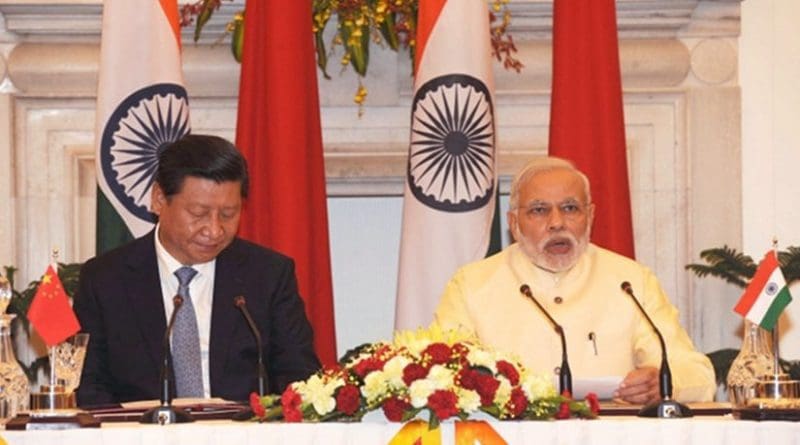BRICS Summit: India Will Have Upper Hand At Bilateral Talks With China – Analysis
By Observer Research Foundation
New Delhi should also be aware that a US-China trade spat opens up new possibilities for India, both vis-à-vis Beijing and Washington, and it should not be hesitant to exploit them.
By Harsh V. Pant
Prime Minister Narendra Modi and Chinese President Xi Jinping are both in Africa wooing the continent before they settle down for the 10th BRICS summit in Johannesburg. Where Beijing is dazzling Africa with the scale of its resources and the ambition of its projects like the Belt and Road Initiative (BRI), New Delhi is hoping to energise its outreach based on its traditional historical ties with the continent, as well as a more participatory approach in decision-making.
It is clear though that both Asian powers are trying to attract the resource-rich African continent and are in the process often looking like competitors. The BRICS summit in Johannesburg, which started on Wednesay, will therefore, allow them to take a step back and look at their bilateral engagement more holistically.
It comes after the famous informal summit in Wuhan between Modi and Xi in the last week of April where the two leaders tried to galvanise India-China ties in a positive direction. It was clear from the summit that key bilateral differences continue to plague the relationship.
Structural factors that have determined the trajectory of this relationship for the past two decades continue to be influential and are not going to disappear overnight. What is equally clear is that top leaderships in both countries are cognisant of the challenges that bedevil their relationship and would like to stabilise their relations.
Contrary to what many seem to be suggesting, India did not go into this Summit from a position of weakness. After standing up to the Chinese border adventurism at Doklam in 2017, and by taking a principled but consistent position on China-Pakistan Economic Corridor (CPEC), India made it clear to China that it will not succumb to brute Chinese power. It is because of this reason that the Chinese President accorded the Indian Prime Minister the honour of an informal Summit, which is rare and usually reserved for American presidents.
It must be remembered that it is China that is facing negative headwinds today with the Trump administration’s clampdown on tariffs and voices growing around the world against the predatory practices of the BRI. At a time when China is yet to complete its restructuring of the domestic economy, it is important for Beijing to work together with New Delhi given the shared global economic climate.
The idea that India and China share convergent interests on the global stage and so need to work together is not new. Throughout the early 1990s, it was this idea on which the broader India-China partnership was predicated upon. In fact, the Russia-India-China trilateral arrangement and the BRICS platform evolved out of this synergy.
India and China spoke in one voice against western interventionist policies in the 1990s and stood up against the West in global trade and climate change negotiations. It is recent that this engagement has been weakening partly because Beijing seemed keener on reaching bilateral understanding with major western powers without taking New Delhi into account.
If today China is once again talking about working together with India on global economic issues, there seems to be a realisation in Beijing that western opinion is turning against it rather rapidly. China would need partners which can help it alleviate some of these challenges. Its traditional partner of choice, Russia, won’t be of much help as it is not fully integrated into the global economic order and has also burned its bridges with the West. India, meanwhile, remains an emerging economic power — both with the heft and credibility — to shape the global economic architecture, in partnership with the West.
At Johannesburg, China will rally India and others to support economic globalisation and multilateralism and make a stand against Donald Trump’s protectionist tendencies. Bilaterally, it would seek greater cooperation from India.
Given India’s high stakes in the globalised economic order, New Delhi would not be hesitant to offer this support. But New Delhi should also be aware that a US-China trade spat opens up new possibilities for India, both vis-à-vis Beijing and Washington, and it should not be hesitant to exploit them. A transactional approach in global diplomacy is needed at this time of widespread global disruption.
This article originally appeared in Money Control

